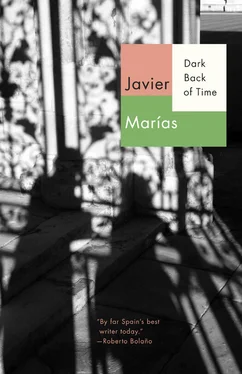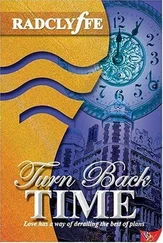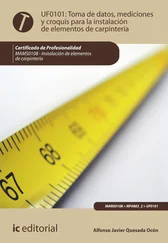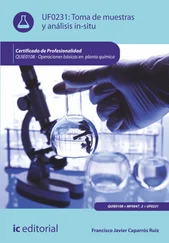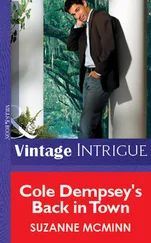That acronym again. “The OSCA?”
“The Oxford Society of Crowd Artistes,” explained Mrs. Stone; in English, the word “artiste,” à la française , has a more modest and jocose ring to it than “artist,” and is reserved for singers, cooks, dancers, fashion designers, actors and milliners. Mrs. Stone handed a sheet of the stationery with the logo on it up to me, I came down a rung to take it. “The Oxford Society of Crowd Artistes (OSCA),” it said, “is an Oxford-based cooperative of extras for film and television with over one hundred members whose experience covers period dramas, thrillers, the Inspector Morse series and numerous important films, working both on location and in the studio.” I kept that piece of paper; in England there are all kinds of societies and organizations like this one.
“You wrote to the Querejetas? How did you know their address?”
“Oh, that was easy, we found them in the annual world guide to movie production companies. Mr. Dobson gave us the name. Do you think there’s any chance? Do you think they’ll answer us? Or that they’ll keep us in mind for the Alabasters?”
I went back up to the top rung and looked at the volume which I already had at home but was now going to buy for Manolo R. R., and a very instructive and amusing volume it is, because you don’t have to deal with the pirates, only read about them. There was expectation and agitation in Ralph Stone’s eyes, and a little sadness in Gillian Stone’s, she was waiting with her hands crossed in her lap.
“I don’t know”; I was expressing pessimism rather than doubt. “I’m afraid they may not be very attentive to the wishes and offers of people they don’t know.” I was going to say “people of no influence” but fortunately stopped myself.
It was hard to believe. The Stones not only assumed themselves to be the model of the Alabasters, but wanted to incarnate them, lend them their presence and their physiques if the fictional characters emerged from the book and acquired corporeality and physiognomies in a film; a strange round trip it would have been had their belief and their appropriation or identification been correct, which it was not. And if such an incarnation were to occur, then the fictional Alabasters would become, in turn, a model for the real Stones, who would study and imitate them, though only while they played the Alabasters before a camera, or who knows if the thing might not have gone even farther. Pity that this whole dimension or zone of the novel, like so many others, and, in fact, in the end, all of them, held, from the start, no interest whatsoever for either Elijah or his daughter; I still don’t know what they saw in Todas las almas to pursue it so ardently at first and then run from it like the devil as soon as they thought it was theirs alone.
It struck me that Mrs. Stone was growing sad, as mothers grow sad when their children are rejected or fail at something, they usually love them all the more for it, in vain; sorrow engenders love, I don’t know why it bothers so many people to inspire it. Perhaps the marriage — and maybe it was early and iron-clad — had cut short a vocation for acting that Ralph, the husband, was now trying to return to before the onset of old age or its foreshadowings, and she must have been the most enthusiastic proponent of any project related to this difficult, late, chimerical compensation, perhaps she felt she owed it to him; many women easily feel themselves to be indebted, few men. It must have been she who wrote and sent the letter to the Querejetas, the idea must have been hers. That letter undoubtedly went straight into the waste-basket, Crowd Artistes logo and all; the filmmakers weren’t even receptive to the wishes of their avowed source of inspiration, whom, though he is a person of no influence, they did know, or one of them at least wanted to know. I refer to the person who invented the story and the atmosphere and the characters.
At that moment, Mercedes López-Ballesteros arrived with her customary punctuality, “Freud’s granddaughter,” it was already time for lunch. I’d hardly had a chance to look around the shop at all, my only booty, The General History of the Pyrates , was scant in comparison to old times, and not even for my own library. Mercedes was in a cheery and very decisive mood; she was carrying an umbrella because she had no confidence in the British sun and she plunged it joyously into the umbrella stand; we all heard it puncturing the packet deposited there — the nauseating sound of many soft grapes being squashed. I’d eaten only one, just after I bought them. Fortunately the Stones took a sportsmanlike view of the whole thing, they didn’t make faces or scold. No book had been stained.
We were about to leave, with Rodríguez Rivero’s Defoe wrapped in rough paper, when they asked me to sign a copy of All Souls for Rupert Cook, their fellow crowd artiste who had loaned it to them quite a while before so they could read it. “That’s how we’ll make up for the delay, we’ll return it to him with value added,” Mrs. Stone said generously after taking it out of her drawer. They occasionally sold books that were signed or inscribed by their authors, the greatest and most costly treasures of any antiquarian book dealer, but an inscription of mine can’t be worth much, I’m still contemporary, not even dead yet. They also, with some hesitation, gave me a photocopy.
“It’s an interview with us that came out recently. You may enjoy seeing it, we tell a number of anecdotes. And we speak of you and your novel.”
“Really?” I took it with curiosity. “Thank you, I’ll read it later, it’s sure to be of great interest to me.”
It was illustrated with a photograph of the two of them, hard to make out on the photocopy, he, smiling with a double-columned folio volume between his outstretched hands, she, more serious, giving him a sidelong glance or perhaps watching out for the valuable folio, and wearing eye-catching earrings and a necklace, perhaps they had dressed up for the occasion, though he wasn’t wearing a tie, sporty as ever. It was from a specialized publication, probably for those in the second-hand bookselling trade, not quite as restricted an audience as that of the Boletín of the jinxed Galdosistas, but almost. It was called The Bookseller and was dated August 12, 1993, very recent indeed; strange that they had already made a photocopy when they couldn’t have known I was in Oxford and was going to visit them, entering their store as a distinguished author and leaving it some time later as a literal pinchaúvas or “puncturer of grapes,” which is a way of saying ne’er-do-well or good-for-nothing in Spanish, even if the act was committed through an intermediary who couldn’t stop laughing at her tremendous feat. The photocopy must not have been originally intended for me.
In the interview, the Stones told the story of their business, distributing the speaking parts equitably between them. They had had stores in Devon and in Shipton-under-Wychwood (that name, Wychwood Forest, a place between the Windrush and Evenlode rivers, “a wood that no longer exists, only its name remains, the wood was cut down and razed during the past century, but it’s very difficult to renounce your name, names say a great deal”) before setting up shop in Oxford. One title they always kept in stock, they said, was Seven Pillars of Wisdom by TE. Lawrence or Lawrence of Arabia, in some valuable edition. Speaking of the back pains that are inevitable in the trade, because of the constant moving of books, Mrs. Stone suggested that the PBFA (which must be a Federation of some sort, in this case no one explained the acronym) should contract the services of a chiropractor, who might have made a good match for the lady cobalt therapist of Professor Ian Michael’s eczemic mishap. But the most jolting part of it, to me, was their mention of me in their comments on notable clients. “We even appear in a Spanish novel by Xavier Marias” (as Ralph Stone clearly referred to me, without the accent on the surname but also, stranger still, with my original and almost forgotten name, I renounced that name but remember it, it’s mine), “a nice young man who was at All Souls a few years ago and came into the shop regularly. He picked up on a habit some dons have of not seeing women, so that one might ask me a question, and I might refer to Gillian who might supply the answer. The supplementary question then comes back to me. This may go on two or three times. The book is called All Souls and we feature as Mr and Mrs Alabaster.”
Читать дальше
